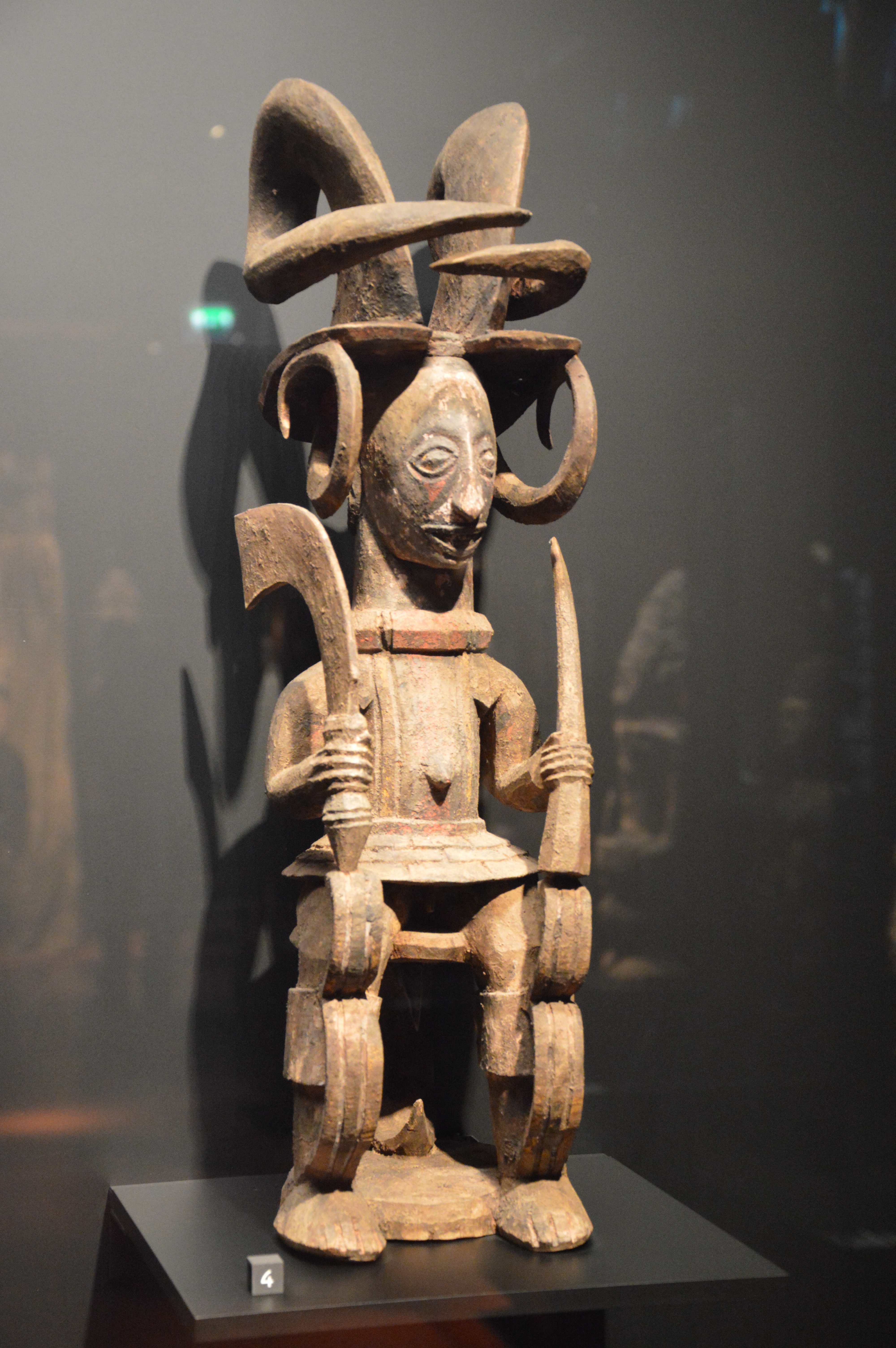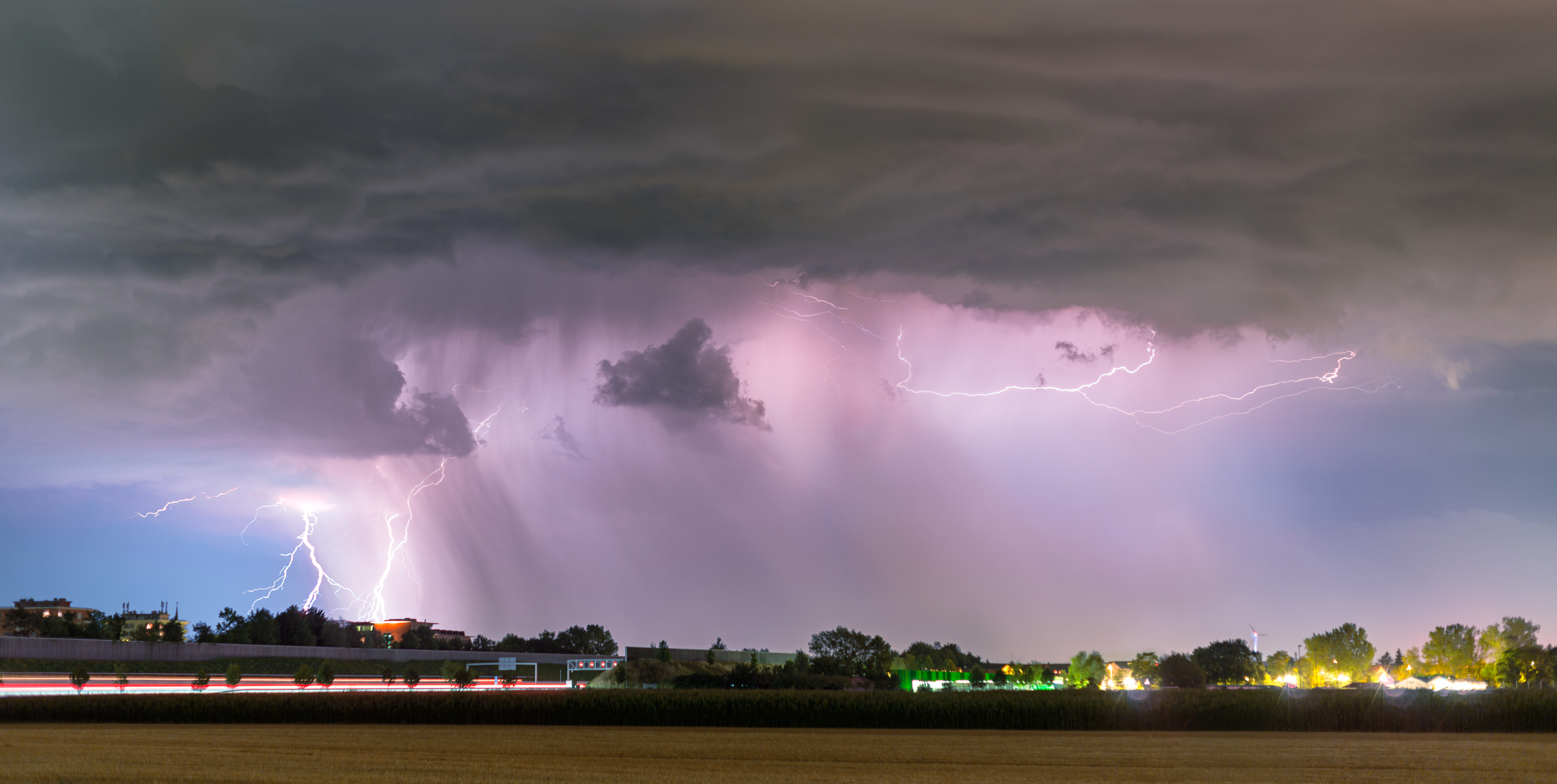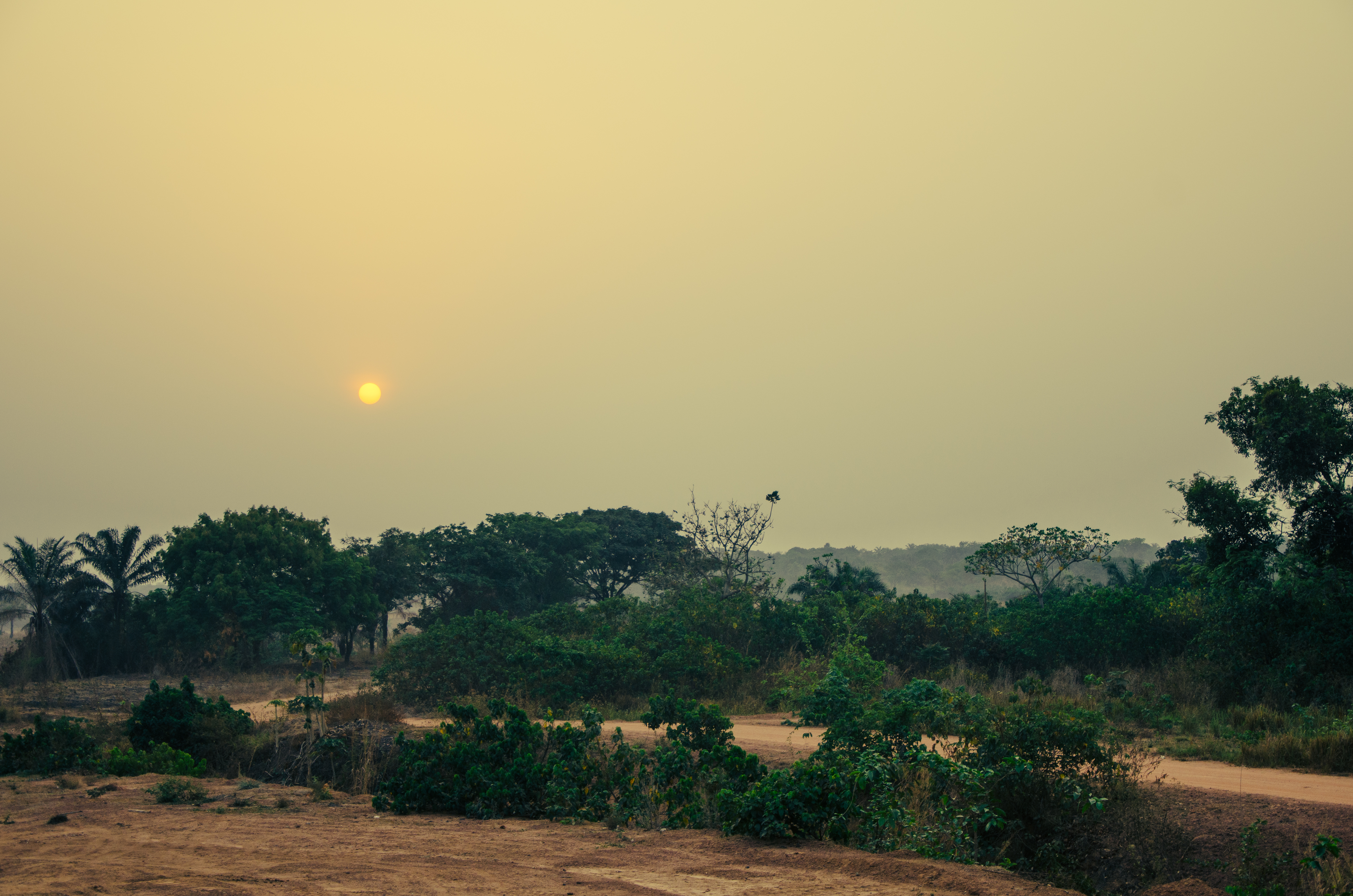|
Amadioha
Amadioha is the Arusi or Agbara of thunder and lightning of the Igbo people of southeastern Nigeria. He is amongst the most popular of Igbo deities and in some parts of Igboland, he is referred to as Amadiora, Kamalu (which is short for ''Kalu Akanu''), Kamanu, or Ofufe. Astrologically, his governing planet is the Sun.Uchendu, Victor C. ''The Igbo of Southeast Nigeria''. Page 96 His color is red, and his symbol is a white ram.Diala, Isidore. ''Ritual and Mythological Recuperation in the Drama of Esiaba Irobi''. Page 104 Metaphysically, Amadioha represents the collective will of the people. He is often associated with Anyanwu, who is the Igbo god of the Sun. While Anyanwu is more prominent in northern Igboland, Amadioha is more prominent in the southern part. His day is Eke, which is the first market day of the Igbo four-day week. Origins Literally Amadioha means man of the people. Most people from the eastern part of Nigeria ascribe the name to their local deity/god. Shrines t ... [...More Info...] [...Related Items...] OR: [Wikipedia] [Google] [Baidu] |
Odinala
Ọdinani (), also ''Omenala'', ''Omenana'', ''Odinana'' or ''Ọmenani'', are the traditional cultural beliefs and practices of the Igbo people of south east Nigeria.Afulezy, Uj"On Odinani, the Igbo Religion", ''Niger Delta Congress'', Nigeria, April 03, 2010 These terms, as used here in the Igbo language, are synonymous with the traditional Igbo "religious system" which was not considered separate from the social norms of ancient or traditional Igbo societies. Theocratic in nature, spirituality played a huge role in their everyday lives. Although it has largely been supplanted by Christianity, the indigenous belief system remains in strong effect among the rural and village populations of the Igbo, where it has at times influenced the colonial religions. Odinani is a pantheistic and polytheistic faith, having a strong central deity at its head.Mbaegbu, Chukwuemeka (4 March 2015). "A Philosophical Investigation of the Nature of God in Igbo Ontology". ''Department of Philosophy ... [...More Info...] [...Related Items...] OR: [Wikipedia] [Google] [Baidu] |
Ala (mythology)
Ala (also known as ''Ani'', ''Ana'', ''Ale'', and ''Ali'' in varying Igbo dialects) is the female Alusi (deity) of the earth, morality, fertility, and creativity in Odinani. In Odinani, Ala rules over the underworld and holds the deceased ancestors in her womb. Her name literally translates to "ground" in the Igbo language, denoting her powers over the earth and her status as the ground itself. Ala is considered the highest Alusi in the Igbo pantheon. Ala's husband is Amadioha, the sky deity. As the goddess of morality, Ala is involved in judging human actions and is in charge of Igbo law and customs known as ''omenala''. Taboos and crimes among Igbo communities that are against the standard of Ala are called ''nsọ Ala''. All ground is considered holy land as it is Ala herself. With human fertility, Ala is credited for the productivity of the land. Ala's messenger and living agent on earth is the python (Igbo: ''éké''), which is especially revered in many Igbo communities. ... [...More Info...] [...Related Items...] OR: [Wikipedia] [Google] [Baidu] |
Arusi
Arusi (also spelled Alusi or Arunsi) are spirits that are worshiped and served in the Igbo religion. There are many different Arusi and each has its own purpose and function. Ancestors The Igbo world is divided into several interconnected realms, principal among them being the realm of the living, the realm of the dead or of the ancestors, and the realm of the unborn. Individuals who led an honorable life and received a proper burial proceeded to the ancestral realm to take their place among the ancestors ("''Ndichie''"), who are separate from the Arusi. From there they kept a watchful eye on the clan and visited their loved ones among the living with blessings such as fertility, good health, longevity, and prosperity. In gratitude the living offered sacrifices to them at the family hearth, and sought their counsel. Arusi worship Each major Arusi has a priest in every town that honors it, and the priest is assisted by a group of acolytes and devotees. Children and Arusi Childre ... [...More Info...] [...Related Items...] OR: [Wikipedia] [Google] [Baidu] |
Chukwu
Chukwu is the supreme being of Igbo spirituality. In the Igbo pantheon, Chukwu is the source of all other Igbo deities and is responsible for assigning them their different tasks. The Igbo people believe that all things come from Chukwu, who brings the rain necessary for plants to grow and controls everything on Earth and the spiritual world. They believe Chukwu to be an undefinable omnipotent and omnipresent supreme deity that encompasses everything in space and space itself. Linguistic studies suggest that the name "Chukwu" is a portmanteau of the Igbo words "chi" ("spiritual being") and "ukwu" ("great in size"). Conception of Chukwu According to the Igbo people, who are the majority in the southeastern region of Nigeria today, Chineke is the creator of the universe and everything good in it along with rain, trees, and other plants. Chukwu is a supreme deity represented by the sun. The ancient deity is not humanized in Igbo tradition belief. Many Igbo Christians refer to ... [...More Info...] [...Related Items...] OR: [Wikipedia] [Google] [Baidu] |
Thunder Gods
Polytheistic peoples from many cultures have postulated a thunder god, the personification or source of the forces of thunder and lightning; a lightning god does not have a typical depiction, and will vary based on the culture. In Indo-European cultures, the thunder god is frequently known as the chief or King of the Gods, e.g. Indra in Hinduism, Zeus in Greek mythology, and Perun in ancient Slavic religion. Thunder gods Mediterranean * God in Abrahamic religions * Teshub (Hurrian mythology) * Adad, Bel, Ishkur, Marduk ( Babylonian-Assyrian mythology) * Baʿal, Hadad ( Canaanite and Phoenician mythology) * Set (Egyptian mythology) * Aplu (Hurrian mythology) * Tarḫunna (Hittite mythology) * Tarḫunz (Luwian mythology) *Vahagn (Armenian Mythology) *Zibelthiurdos (Thracian mythology) * Zeus (Greek Mythology) * Jupiter (Roman Mythology) * Northwestern Eurasia * Armazi (god) Georgian Mythology * Afi ( Abkhaz Mythology) * Ambisagrus, Loucetios (Gaulish mythology) * ... [...More Info...] [...Related Items...] OR: [Wikipedia] [Google] [Baidu] |
Igboland
Igboland (Standard ), also known as Southeastern Nigeria (but extends into South-Southern Nigeria), is the indigenous homeland of the Igbo people. It is a cultural and common linguistic region in southern Nigeria. Geographically, it is divided by the lower Niger River into two sections: an eastern (the larger of the two) and a western one. Its population is characterised by the diverse Igbo culture and the speakers of equally diverse Igbo languages. Politically, Igboland is divided into several southern Nigerian states; culturally, it has included several subgroupings, including the Anioma, the Ngwa people, Ngwa, the Aro people, Aro, the Edda people, Ezza, the Ibeku, the Ohuhu people, Ohuhu, the Oboro (Nigeria), Oboro, the Ikwerre people, Ikwerre, the Ogba people, Ogba, the Omuma, the Ohafia, the Oyigbo, the Mbaise, the Isu people, Isu and the Ekpeye. Territorial boundaries Igboland is surrounded on all sides by large rivers, and other southern and central Nigeria indigenous tr ... [...More Info...] [...Related Items...] OR: [Wikipedia] [Google] [Baidu] |
Maurice Iwu
Maurice Mmaduakolam Iwu (born 21 April 1950) is a Nigerian Professor of Pharmacognosy who was appointed Chairman of the Independent National Electoral Commission (INEC) in June 2005, and was removed from office in April 2010. Background Maurice Mmaduakolam Iwu was born on 21 April 1950, in Umuezeala, Umukabia, Ehime Mbano in Imo State. He attended Saint Pius X College, Bodo-Ogoni for his secondary education. He studied at the University of Bradford, England, receiving a Master's degree in Pharmacy in 1976, and a Ph.D in 1978. He was World Health Organisation (WHO) Visiting Scholar to Dyson Perrins Laboratory, University of Oxford (1980), Fulbright Senior Scholar, Ohio State University and won the U.S National Research International Prize for Ethnobiology in 1999. He was a Professor of Pharmacognosy at the University of Nigeria, Nsukka (1984–1993). Career Entering business, Iwu became Vice-President, Research and Development of Tom's of Maine, a personal care manufacturing compan ... [...More Info...] [...Related Items...] OR: [Wikipedia] [Google] [Baidu] |
Igbo Culture
Igbo culture () are the customs, practices and traditions of the Igbo people of southeastern Nigeria. It consists of ancient practices as well as new concepts added into the Igbo culture either by cultural evolution or by outside influence. These customs and traditions include the Igbo people's visual art, music and dance forms, as well as their attire, cuisine and language dialects. Because of their various subgroups, the variety of their culture is heightened further. Music The Igbo peoples have a melodic and symphonic musical style, which they designed from forged iron. Other instruments include opi otherwise known as 'Oja'' a wind instrument similar to the flute, igba, and ichaka. Another popular musical form among Igbo people is highlife, which is a fusion of jazz and traditional music and widely popular in West Africa. The modern Igbo highlife is seen in the works of Prince Nico Mbarga Dr Sir Warrior, Oliver De Coque, Bright Chimezie, Celestine Ukwu and Chief Os ... [...More Info...] [...Related Items...] OR: [Wikipedia] [Google] [Baidu] |
Anyanwu
Anyanwu (''anyaanwū'', meaning "eye of the sun" in Igbo) is an Igbo solar deity and a surname given to people of the Igbo people of Nigeria. Anyanwu is also the name given to a major character in the Octavia E. Butler's ''Patternist series''. Anyanwu is also the name attributed to the "Spirit Face" (who is assertive) of Sunny Nwazue in Akata Witch and Akata Warrior by Nnedi Okorafor. See also * List of solar deities A solar deity is a deity who represents the Sun The Sun is the star at the center of the Solar System. It is a nearly perfect ball of hot plasma, heated to incandescence by nuclear fusion reactions in its core. The Sun radiates this ene ... References {{Odinani Igbo religion ... [...More Info...] [...Related Items...] OR: [Wikipedia] [Google] [Baidu] |
Nigeria
Nigeria ( ), , ig, Naìjíríyà, yo, Nàìjíríà, pcm, Naijá , ff, Naajeeriya, kcg, Naijeriya officially the Federal Republic of Nigeria, is a country in West Africa. It is situated between the Sahel to the north and the Gulf of Guinea to the south in the Atlantic Ocean. It covers an area of , and with a population of over 225 million, it is the most populous country in Africa, and the world's sixth-most populous country. Nigeria borders Niger in the north, Chad in the northeast, Cameroon in the east, and Benin in the west. Nigeria is a federal republic comprising of 36 states and the Federal Capital Territory, where the capital, Abuja, is located. The largest city in Nigeria is Lagos, one of the largest metropolitan areas in the world and the second-largest in Africa. Nigeria has been home to several indigenous pre-colonial states and kingdoms since the second millennium BC, with the Nok civilization in the 15th century BC, marking the first ... [...More Info...] [...Related Items...] OR: [Wikipedia] [Google] [Baidu] |
Igbo People
The Igbo people ( , ; also spelled Ibo" and formerly also ''Iboe'', ''Ebo'', ''Eboe'', * * * ''Eboans'', ''Heebo''; natively ) are an ethnic group in Nigeria. They are primarily found in Abia, Anambra, Ebonyi, Enugu, and Imo States. A sizable Igbo population is also found in Delta and Rivers States. Large ethnic Igbo populations are found in Cameroon, Gabon, and Equatorial Guinea, as well as outside Africa. There has been much speculation about the origins of the Igbo people, which are largely unknown. Geographically, the Igbo homeland is divided into two unequal sections by the Niger River—an eastern (which is the larger of the two) and a western section. The Igbo people are one of the largest ethnic groups in Africa. The Igbo language is part of the Niger-Congo language family. Its regional dialects are somewhat mutually intelligible amidst the larger "Igboid" cluster. The Igbo homeland straddles the lower Niger River, east and south of the Edoid and Idomoid gr ... [...More Info...] [...Related Items...] OR: [Wikipedia] [Google] [Baidu] |
Sun (astrology)
In astrology, planets have a meaning different from the astronomical understanding of what a planet is. Before the age of telescopes, the night sky was thought to consist of two very similar components: fixed stars, which remained motionless in relation to each other, and moving objects/" wandering stars" ( grc, ἀστέρες πλανῆται, asteres planetai), which moved relative to the fixed stars over the course of the year(s). To the Ancient Greeks who learned from the Babylonians - the earliest astronomers/astrologers - this group consisted of the five planets visible to the naked eye and excluded Earth, plus the Sun and Moon. Although the Greek term ''planet'' applied mostly to the five 'wandering stars', the Ancients included the Sun and Moon as the ''Sacred 7 Luminaires/7 Heavens'' (sometimes referred to as "Lights",) making a total of 7 planets. The ancient Babylonians, Greeks, Persians, Romans and others thought of the 7 Classical Planets as gods and named their ... [...More Info...] [...Related Items...] OR: [Wikipedia] [Google] [Baidu] |





